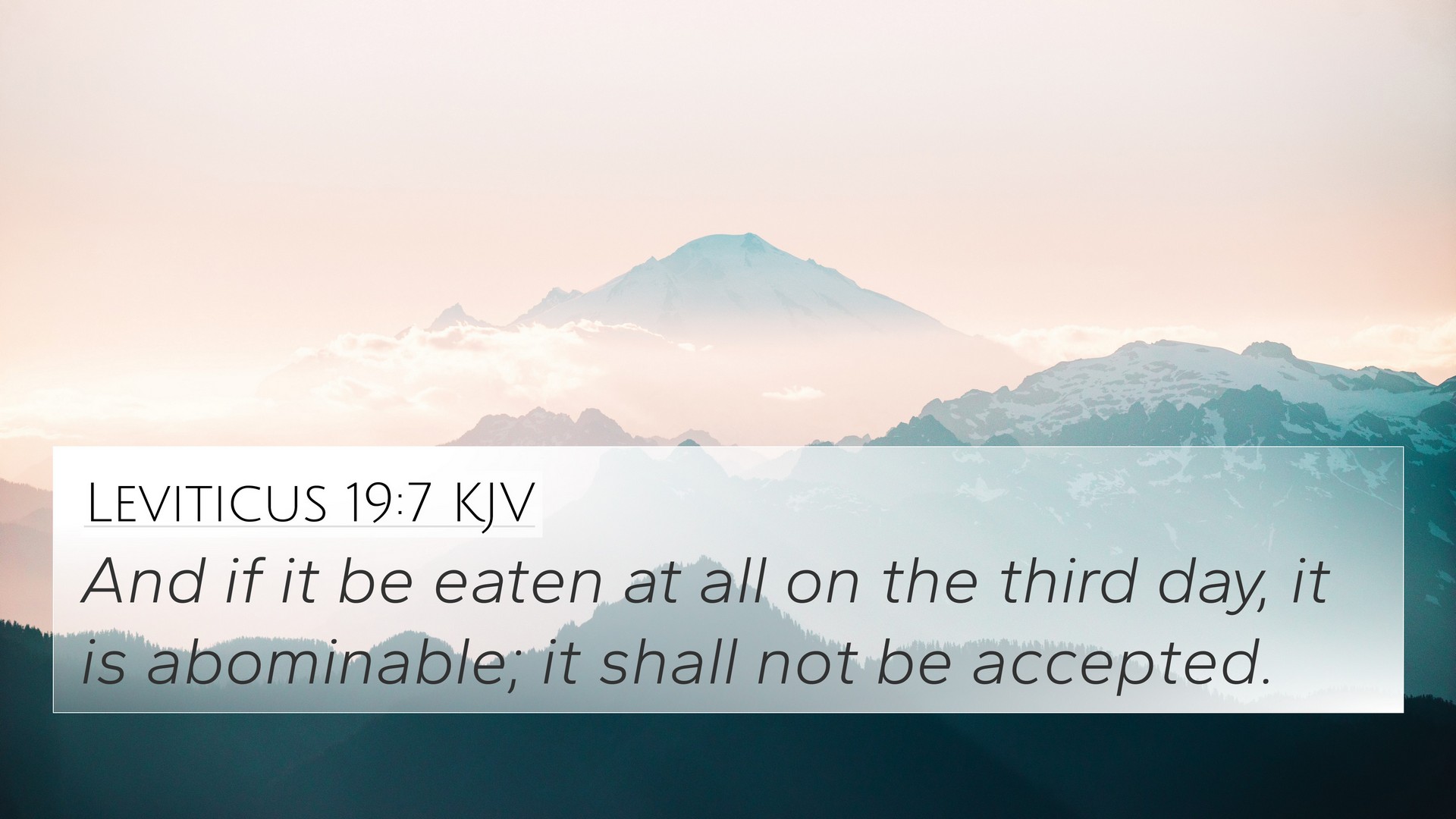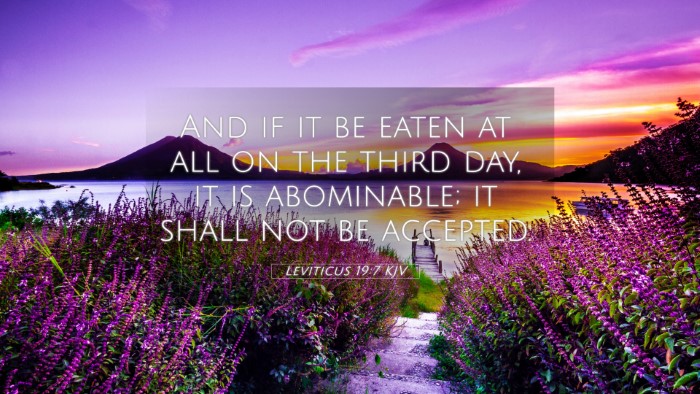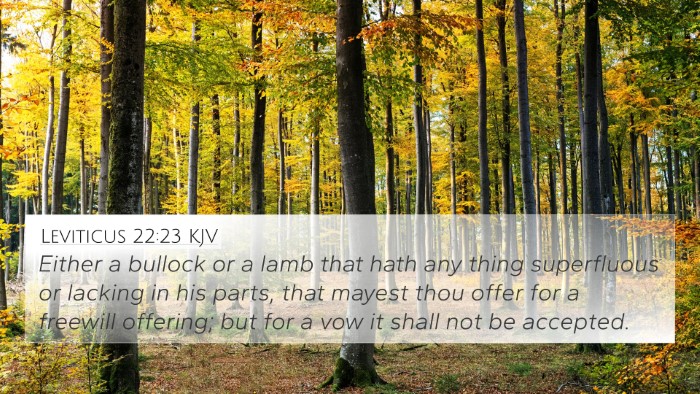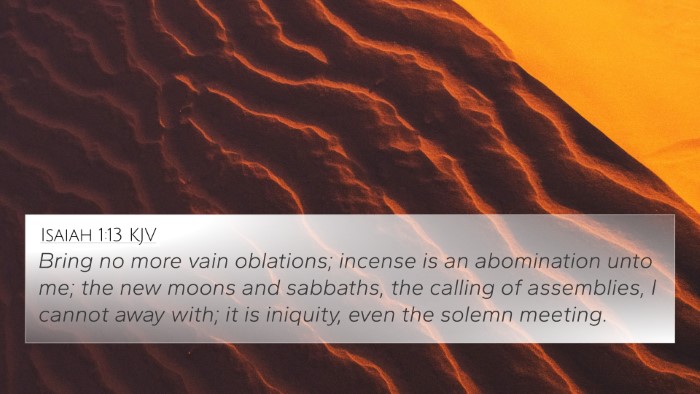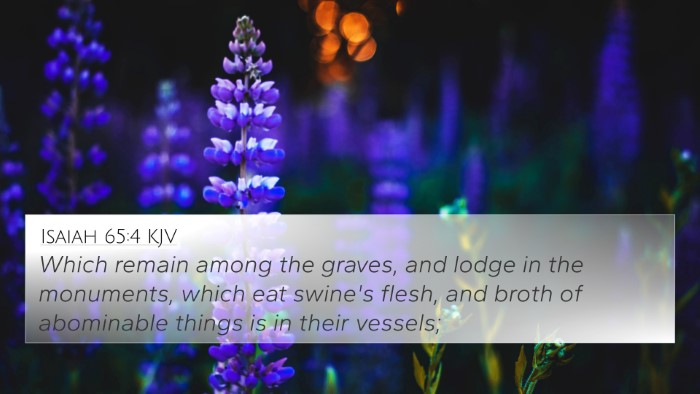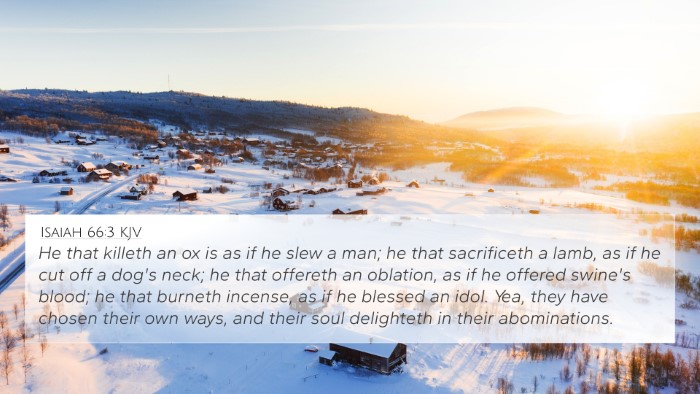Understanding Leviticus 19:7
Leviticus 19:7 states: "And if it be eaten at all on the third day, it is abominable; it shall not be accepted." This verse belongs to the Law given to the Israelites regarding the sacrificial offerings and shows the importance of recognizing the proper times and conditions for offering worship to God.
Summary of Leviticus 19:7
In Leviticus 19:7, the focus is on the regulations surrounding sacrifices, specifically meat offerings. This part of the Mosaic Law emphasizes purity and the need for offerings to be presented in a manner that is acceptable to God. The third day is significant in this context as it's related to the holiness of the offering, suggesting that anything not consumed properly becomes unclean and thus unacceptable in the eyes of God.
Commentary Insights
-
Matthew Henry:
Henry highlights the emphasis on the integrity of the sacrificial offerings and how neglecting the sacredness leads to spiritual corruption. He notes that the third day represents a time limit for proper disposal and observance of purity laws.
-
Albert Barnes:
Barnes comments on the serious implications of consuming offerings beyond the prescribed time. He stresses that adherence to these rules is critical for maintaining a holy relationship with God, as offerings made inappropriately are seen as defiling.
-
Adam Clarke:
Clarke elaborates on the principles of the sacrificial system, emphasizing that God desires proper respect and reverence for His commandments. He suggests that this regulation was intended to teach the Israelites the value of obedience and the seriousness of sacred obligations.
Bible Cross References
Leviticus 19:7 can be understood more fully through its connections with other Bible verses:
- Leviticus 7:17: Discusses the timeline for consuming offerings, reinforcing the proper procedure required for worship.
- Exodus 23:18: Prohibits the boiling of a kid in its mother’s milk, indicating the sanctity of offerings.
- Deuteronomy 15:21: Details acceptable conditions for sacrifices, emphasizing the importance of presenting blemish-free offerings.
- 1 Peter 2:5: Connects New Testament believers as a holy priesthood, offering spiritual sacrifices acceptable to God.
- Hebrews 13:15: Encourages believers to offer sacrifices of praise, drawing a parallel to the Old Testament regulations on offerings.
- Matthew 5:23-24: Emphasizes the need for reconciliation before presenting a gift at the altar, reinforcing the principle of purity in offerings.
- Romans 12:1: Invites believers to present themselves as living sacrifices, highlighting the ongoing relevance of sacrificial principles in spiritual life.
Connecting Themes
The themes in Leviticus 19:7 resonate throughout the Bible, showcasing God's desire for holiness, purity, and proper worship. These foundational principles encourage believers to reflect on the nature of sacrifice and how it influences their relationship with God.
Conclusion
Understanding Leviticus 19:7 opens the door to exploring how the standards of the Old Covenant inform the practices of the New Covenant. By reflecting on these connections, believers can appreciate the continuity of God's instructions throughout scripture.
Exploring Bible Verse Connections
Through a comparative Bible verse analysis of Leviticus 19:7, one can utilize tools for cross-referencing and engage in deeper studies of themes across both the Old and New Testaments. The practice of inter-Biblical dialogue enhances understanding and reveals profound truths about God's nature and intentions.
